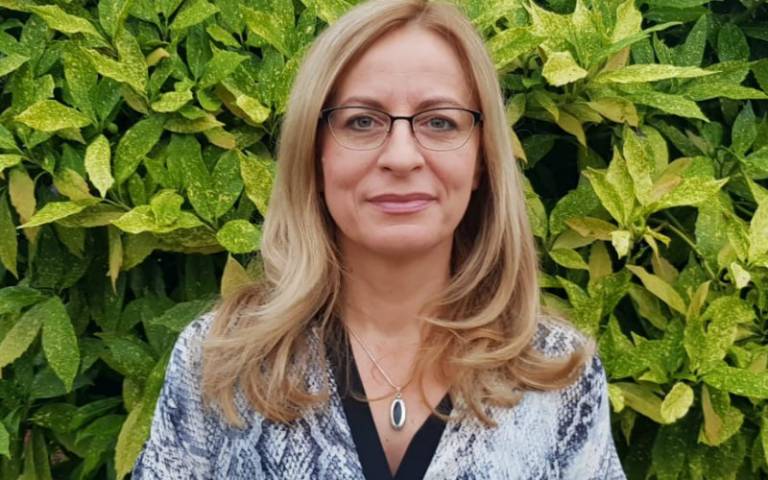My route to Principal Teaching Fellow: Dr Cosette Crisan
The mathematics educator on research-led and research-based approaches to teaching and how she used the Academic Career Framework to get recognition for her achievements.

15 November 2018
You’ve just been promoted to Principal Teaching Fellow. What is your role?
As a mathematics educator in the department of Curriculum, Pedagogy and Assessment at the IOE, UCL's Faculty of Education and Society, I teach on a number of routes into Initial Teacher Training (PGCE Mathematics, School Direct and SCITT), educating graduates to be secondary school teachers of Mathematics.
I am also the leader of the MA in Mathematics Education programme, teaching on and managing modules within this programme.
Over the past four years I have contributed to the UCL Arena Gateway programme delivery through teaching and currently leading the ‘Teaching Undergraduate Mathematics: Introduction for Postgraduate Students’, one of the only three subject specific training courses offered to Postgraduate Teaching Assistants (PGTAs) across all the UCL departments.
What challenges do you face?
Contributing to many programmes is an enriching and rewarding experience, but such diversity comes with its challenges; the key to manage my workload is to be highly organised! I am also learning to delegate appropriately.
What’s the best thing about your job?
There are many aspects I love about my job and working at the IOE.
I am part of one of the largest team of mathematics educators in England, with a variety of teaching backgrounds and experiences, and research interests, and so I count myself fortunate to be able to tap into that pool of expertise.
My role predominately involves training and educating the next generation of mathematics teachers at all levels of education.
My dedication to improving learners’ experiences with mathematics has always been informed by my familiarisation with research into successful pedagogical practices, aimed at supporting teaching and learning of the subject in ways that provide learners with a strong foundation in the discipline that will serve them well in long term, beyond merely passing exams.
What do you think of the new Academic Career Framework?
I found this document very useful in building my case for promotion.
The new paths into promotion are intended to recognise the many facets of an academics’ work-related activities.
Indeed, I see my promotion on the education path as a recognition of my achievements in teaching that has been research-led and has led to a research-based education that I provide to my students.
It almost goes without saying that the contractually stipulated research time of my previous contract was essential to me in getting here.
What are your thoughts on the status of teaching at UCL?
As a mathematics educator at the IOE, I teach and a lot of my teaching is about how to teach, and so an academic framework that recognises teaching as well as research is very welcome, indeed.
I have always prided myself on my commitment to teaching excellence, efforts recognised by accreditation by the Higher Education Academy (HEA) as a Senior Teaching Fellow.
I see myself as continuing my teaching and research activities, which in my view are symbiotically related, and so as a Principal Teaching Fellow I would like to think that I will still have the opportunities to continue to do so.
What other achievements helped you to make a case for promotion?
In 2018 I was nominated for the UCL Education Awards Student Choice Awards in two categories: Exceptional Feedback and Outstanding Research Supervision.
As part of the call to diversify the modes of delivery in accordance with the IOE, UCL's Faculty of Education and Society, Teaching and Learning Strategy 2013-17, I took on the initiative to co-design and -deliver the only online module of the MA in Mathematics Education programme.
My long-standing research interest in how conceptual understanding of mathematics could be facilitated through the incorporation of the digital technology informed the knowledge base of this module, while its design was much influenced by trialling the implementation of the dimensions of connectivity of the UCL Connected Curriculum.
In 2017 I was appointed the Connected Curriculum Champion in the Curriculum, Pedagogy and Assessment department at the IOE in recognition of my work where I use research to shape and be shaped by the learning experiences of my students.
- Read a case study on one Dr Crisan's projects: Alumni and postgraduate students working together on dissertation and research topic decisions
 Close
Close

